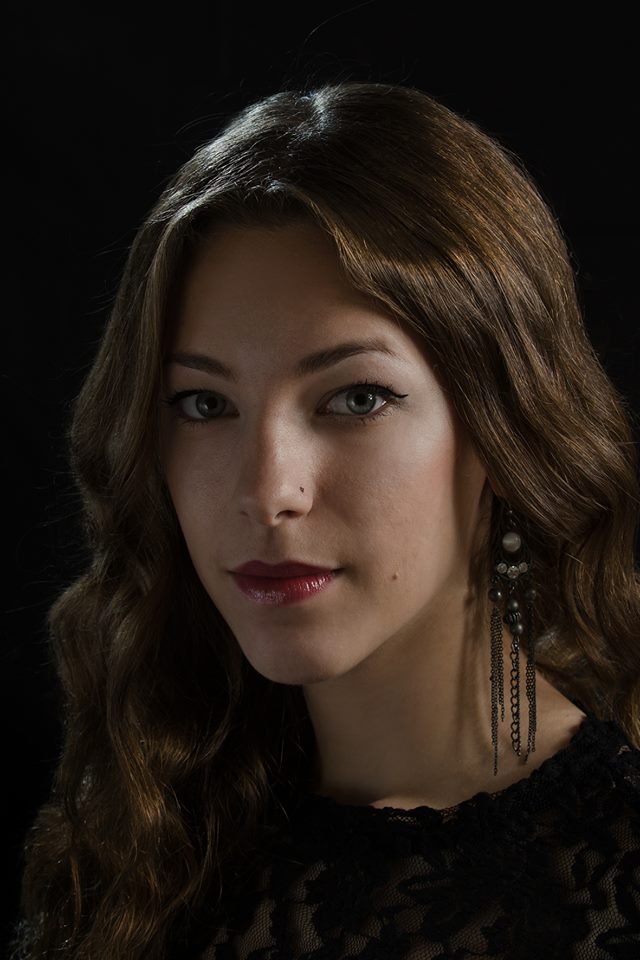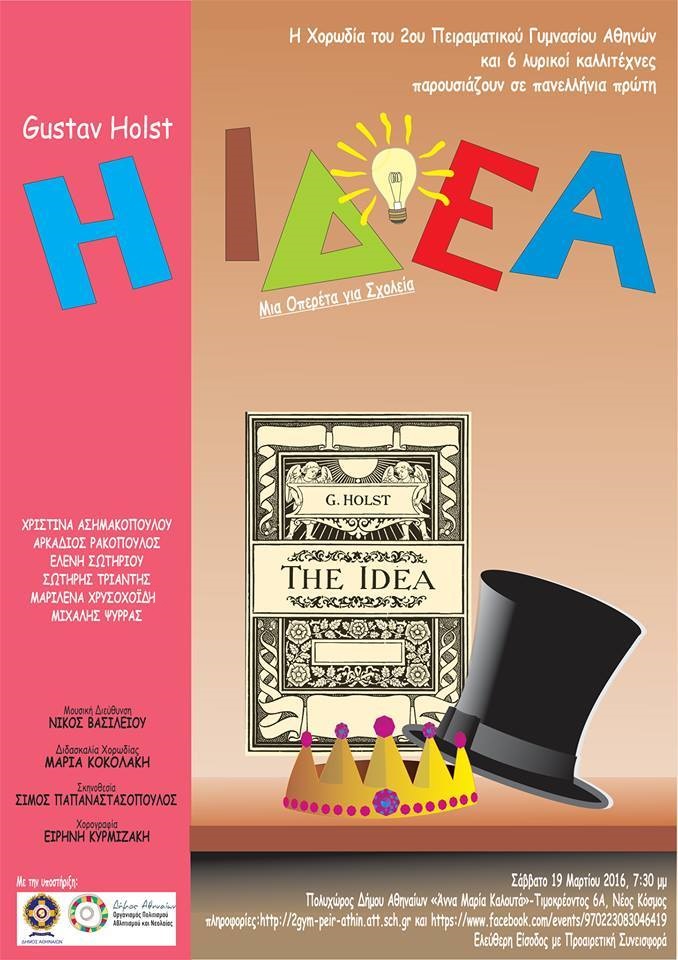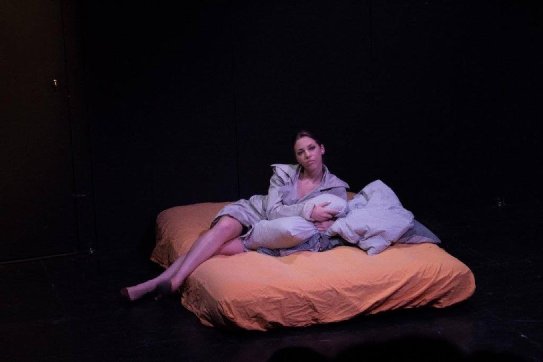Emerging opera singer Marilena Chrisochoidi kindly took the time to answer questions about her life and career. She has lately appeared in the opera The Merry Widow in the role of Olga, and she stars in Andonis Karatzikis’s new opera, Eleni. She is also rehearsing for concerts featuring Vivaldi’s ‘Gloria’ and Charpentier’s ‘Te Deum’.
Tell us a little about yourself.
I was born in Athens but my family originates from Asia Minor. I’ve known since childhood that the only thing I wanted to do in my life was music and singing. I started playing the piano in primary school, then I went to a musical high school. I was taught the piano, the santur (a kind of zither) and the tambourás (a kind of traditional stringed instrument that developed into the bouzouki) both at school and at the Conservatory. My love for the piano and even more, the santur, contributed in winning prizes and scholarships. In high school I started taking voice lessons at the Conservatory, which led me to study opera. After school I exclusively studied monody (lessons in opera) and I watched every opera performance I could. My melodrama teacher at the Conservatory encouraged me to study theatre and so I graduated from the Karolos Koun Art Theatre Drama School, while at the same time getting my diploma in monody. Today I teach the zither and voice lessons in conservatories while taking my first steps as a soloist and an actor in opera and theatre.
What were the major difficulties you’ve faced in the last five years?
I’d say the main difficulties are of a financial nature, since in our discipline you know you have work for the current month but the following you’re unemployed and waiting for the next concert or performance. At the same time, taxation for freelancers is hard to bear.

Did anyone in particular inspire you or help you?
The work and the collaborations within it are in themselves a source of inspiration, while the rhythm of performances helps you escape from the difficulties of reality and the problems of daily life. It’s important that the arts continue to evolve in difficult times and that we promote culture and civilization.
What are your hopes/plans for the future?
My aim is to continue doing what I love and to keep improving, with the objective not only to be emotionally uplifted by my art but also to contribute to its safeguard and development.
What are your hopes for Greece? What changes do you hope to see happen?
The difficulties of the Greek situation are clear to me. However, I hope the Greek people will manage to resurrect themselves from the ashes as they so well know how, so that there will be space for a cultural renaissance beyond the improvement of daily life, and so that as a country we can prove worthy of our cultural inheritance. I also wish for the refugees who arrive on our shores a rapid end to the agonizing struggle for survival they experience daily. I hope that Greece will prove to have been an aid in their future lives.

Have you considered leaving? If so, where would you like to go, and why?
I have not decided to leave Greece permanently. However, international activities promote the career and development of an artist. Therefore, I too try to find collaborations in countries where opera is flourishing.
Are you actively doing anything to help with the situation? Is there something you would like to do?
All contemporary artists in Greece are contributing in concrete ways to the continuity of art, by investing emotionally and practically, given the low level and erratic frequency of compensation. I consider the organization of an increasing number of charitable performances and concerts all over the country of extreme importance, both for the support of the vulnerable and for the diffusion of art in general.
How do you see Greece in 5, 10 years?
The truth is that the future seems difficult. But it is up to us to reverse this trend with hard work, humanitarian and cultural education, solidarity and fundamental change. Our people must regain the sense of pride they had in the past and stop trying to be a pale copy of western civilization. Greece is a country full of treasures from coast to coast. I consider it imperative to exploit our material riches (products and foods with controlled designation of origin) as well as our cultural riches (theatre, education, archaeological heritage). Surely this would make for a strong start.

How do you cope with obstacles and frustrations in your everyday life ?
I try not to let the difficulties I meet be an obstacle to my objectives. I prefer to focus on pleasant events from which I draw joy and strength to go on.
What are the positive sides of living in Greece? Have you had any good experiences lately?
Greeks continue to fight at all levels, showing exemplary patience and faith. Despite the difficulties due to the drop in living standards, there’s always a spark of optimism. That is the positive side of life in Greece. In And in my own discipline, we also remain active while keeping our standards high.



An eye-opening interview with Marilena Chrisochoidi. I wish her much success. ❤ ❤
LikeLiked by 1 person
Just Lovely Marina!
LikeLiked by 1 person
Wonderful interview – and a positive, open attitude. Wishing Marilena every success!
LikeLiked by 1 person
Thank you so much for this one, right up my street, as I sing as well. I have great admiration for Marilena and wish her the very best for the future.
LikeLiked by 1 person
I think the arts are suffering in most countries in Europe at the moment, sadly, but Marilena seems to be taking a sensible approach to her career.
LikeLiked by 1 person
Wow Marina, amazing!
LikeLike
She sounds like she has a good head on her shoulders. Good interview.
LikeLiked by 1 person
There’s no doubt she’s right about Greece being a country for treasures from coast to coast. I hope things gradually become easier there again.
LikeLiked by 1 person